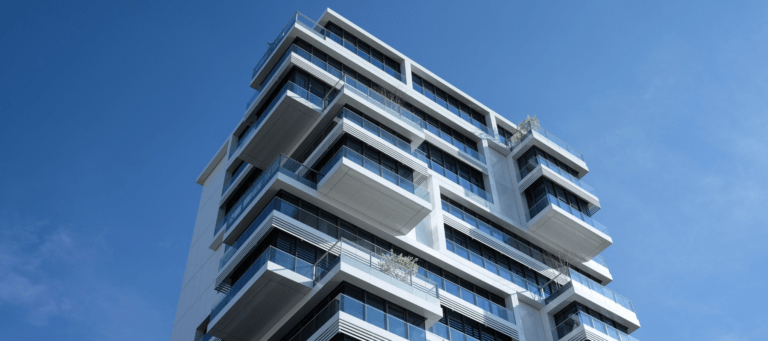Understanding the impact of condominium reserve studies on property values is crucial for anyone involved in the management or ownership of condominiums. This comprehensive guide explores how these studies are integral to maintaining and potentially increasing the value of your property.
What is a Condominium Reserve Study?
A condominium reserve study is a detailed report that assesses the current condition of the property’s common areas and predicts future repair and replacement costs. It outlines a financial strategy to fund these expenses without resorting to significant special assessments that can burden homeowners. This study not only ensures financial readiness but also contributes to the property’s upkeep and overall appeal.
The Impact on Property Values
The link between well-managed reserve funds and property values is direct and significant:
- Preventive Maintenance: A comprehensive condominium reserve study provides a clear and structured plan for regular maintenance and necessary repairs. This proactive approach prevents the gradual deterioration of the property’s structural and aesthetic aspects. Well-maintained buildings not only retain their appeal over the years but also attract potential buyers willing to pay a premium for properties in excellent condition. Moreover, regular upkeep prevents the occurrence of major breakdowns that can be significantly more costly and disruptive.
- Financial Health: Condominiums with well-funded reserves are viewed favorably in the real estate market. A healthy reserve fund reflects prudent financial stewardship, suggesting that the property is managed efficiently and responsibly. For prospective buyers, this financial health reassures them that they are less likely to encounter unexpected hefty fees or special assessments in the future. This level of financial predictability and security is a compelling selling point, making these properties highly desirable.
- Marketability: Adherence to the recommendations of a condo reserve study enhances a property’s marketability. Buildings that follow their reserve study’s guidelines typically boast better curb appeal and modernized facilities. Such properties stand out in the market, attracting buyers looking for homes that require minimal additional investment. Enhanced curb appeal and updated facilities contribute not only to faster sales but also to potentially higher sales prices, as buyers are often willing to pay more for homes that offer immediate comfort and fewer anticipated issues.
- Community Confidence: When potential buyers see that a condominium manages its finances well and maintains its infrastructure proactively, it builds confidence in the management of the community. This confidence can translate into higher demand for units within the building, further driving up property values. A well-managed reserve fund also demonstrates to lenders and appraisers that the property is a lower-risk investment, which can facilitate more favorable financing conditions for new buyers.
Steps in Conducting a Condominium Reserve Study
- Physical Component Assessment: This initial phase entails a thorough inspection of all significant physical assets within the condominium complex. Specialists such as structural engineers, architects, and maintenance experts are typically involved in evaluating the condition of critical components like roofs, elevators, pools, parking structures, and HVAC systems. Each element is assessed for its current functionality, structural integrity, and aesthetic condition. The goal is to identify any signs of wear and tear, potential safety issues, or areas where efficiency could be improved. By determining the current state of these components, the assessment helps estimate their remaining useful lifespan, which is crucial for planning future maintenance and replacements.
- Financial Forecasting: Following the physical evaluation, the condominium reserve study transitions into financial analysis. This involves estimating the costs associated with maintaining, repairing, or replacing the assessed components over time. Cost estimates take into account current market rates for labor and materials, anticipated inflation rates, and any potential technological advancements that might affect future expenses. A detailed timeline is created, outlining when each major expenditure is expected to occur. This timeline helps the condominium board or property management team visualize the financial demands over the coming years, facilitating better budget planning and financial preparedness.
- Funding Strategies: With a clear understanding of the upcoming financial requirements, the condominium reserve study outlines strategic funding plans designed to accumulate the necessary capital in a timely manner. These strategies often include setting up regular contributions to the reserve fund from condo owners, which are calculated based on the projected expenses and the current fund balance. The study may also suggest establishing or adjusting special assessment policies for extraordinary expenses that were not foreseen in the initial planning. The objective is to ensure that the reserve fund remains adequately funded to cover all identified needs without imposing undue financial burden on the residents. Additionally, these funding plans are periodically reviewed and adjusted to reflect any changes in the property’s needs or financial status, ensuring ongoing alignment with the community’s financial health.
Challenges and Considerations
- Updating the Study: It’s crucial to regularly update your condominium reserve studies to reflect any changes in the costs associated with maintaining, repairing, or replacing property components, as well as adjustments in their overall condition. These updates help ensure that the financial strategies remain aligned with the current needs of the property, preventing budget shortfalls or over-accumulation of funds. Typically, updates are recommended every three to five years or following significant changes to the property or local economic conditions.
- Engaging Professionals: For accuracy and adherence to the latest standards and regulations, involving experts who specialize in reserve studies is highly recommended. These professionals bring a depth of experience in assessing the condition of property components and accurately forecasting costs, which is critical for compliance with local laws and regulations. Their expertise ensures that the reserve study is thorough and that the financial planning is both realistic and sufficient to meet the community’s future needs.
Long-Term Benefits of a Condominium Reserve Study
- Sustained Property Value: Reserve studies play a pivotal role in the long-term maintenance and management of condominium properties. By establishing comprehensive maintenance plans, these studies help ensure that all critical property components are kept in optimal condition. Regular maintenance prevents the property from deteriorating, thereby maintaining or even increasing its market value over time. This proactive approach safeguards the investment of all owners by ensuring the property remains attractive to potential buyers and retains its competitive edge in the real estate market.
- Reduced Conflict: A well-detailed reserve study clearly outlines the anticipated costs and necessary savings for maintaining the property, which can significantly reduce conflicts among homeowners. When all residents understand the financial planning involved and the reasons behind the dues they are paying, it fosters a sense of fairness and transparency. This clarity helps prevent disputes related to special assessments or sudden increases in fees, as homeowners can see the justification for these financial decisions within the context of their investment and communal living.
Conclusion
A meticulously conducted condominium reserve study is an indispensable tool that significantly contributes to maintaining and boosting the value of condominium properties. These studies ensure that all physical components of the property are regularly inspected and maintained, which helps in avoiding the deterioration of crucial infrastructure and amenities. By strategically managing financial resources to cover necessary repairs and updates, reserve studies provide a buffer against unforeseen expenses, thus fostering financial stability. Ultimately, this careful balance of upkeep and financial management not only protects the property’s value but also enhances the quality of life within the community, making it a more desirable place to live. Through diligent application of reserve studies, condominium boards can support a robust, thriving community, securing the investments of all property owners.


